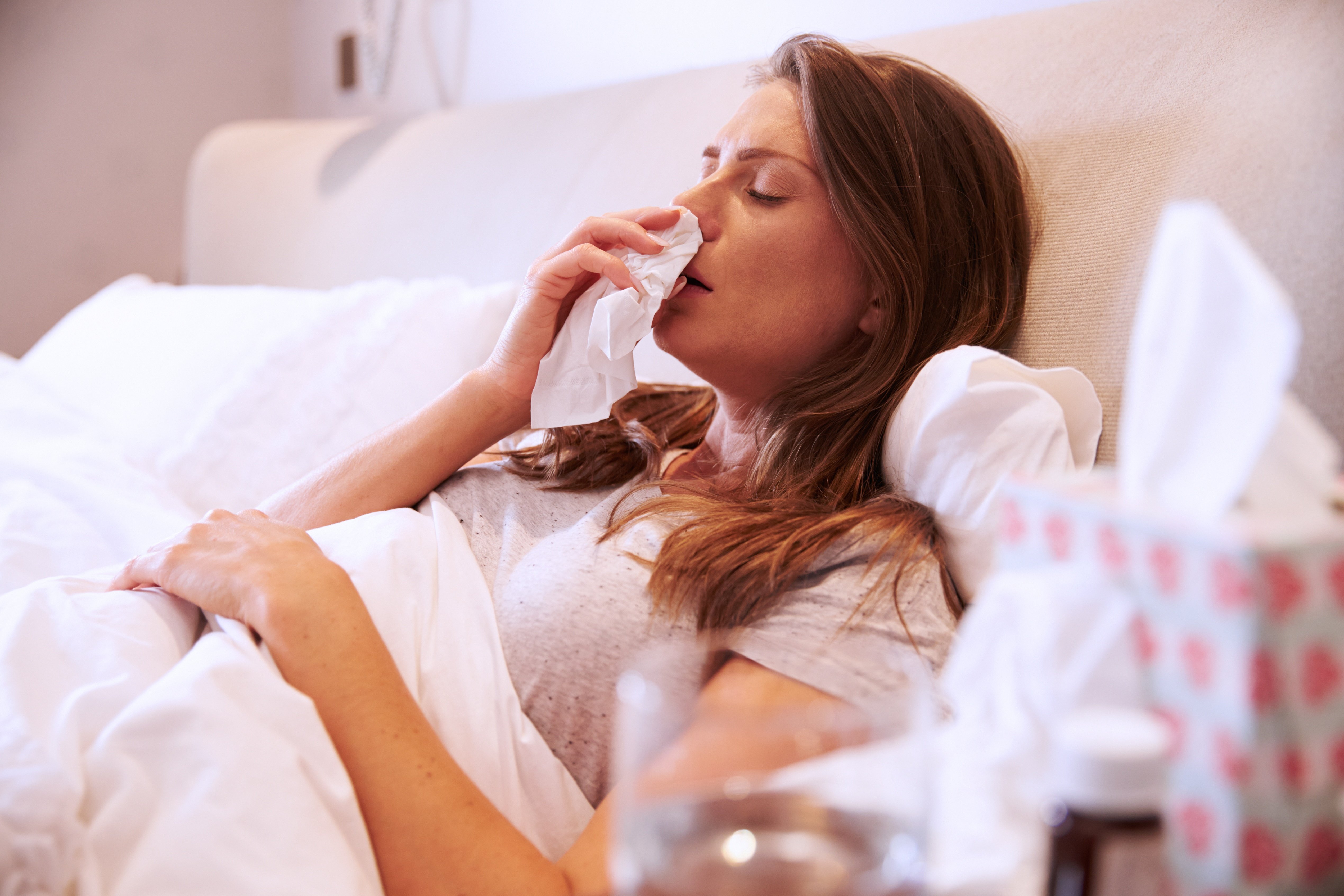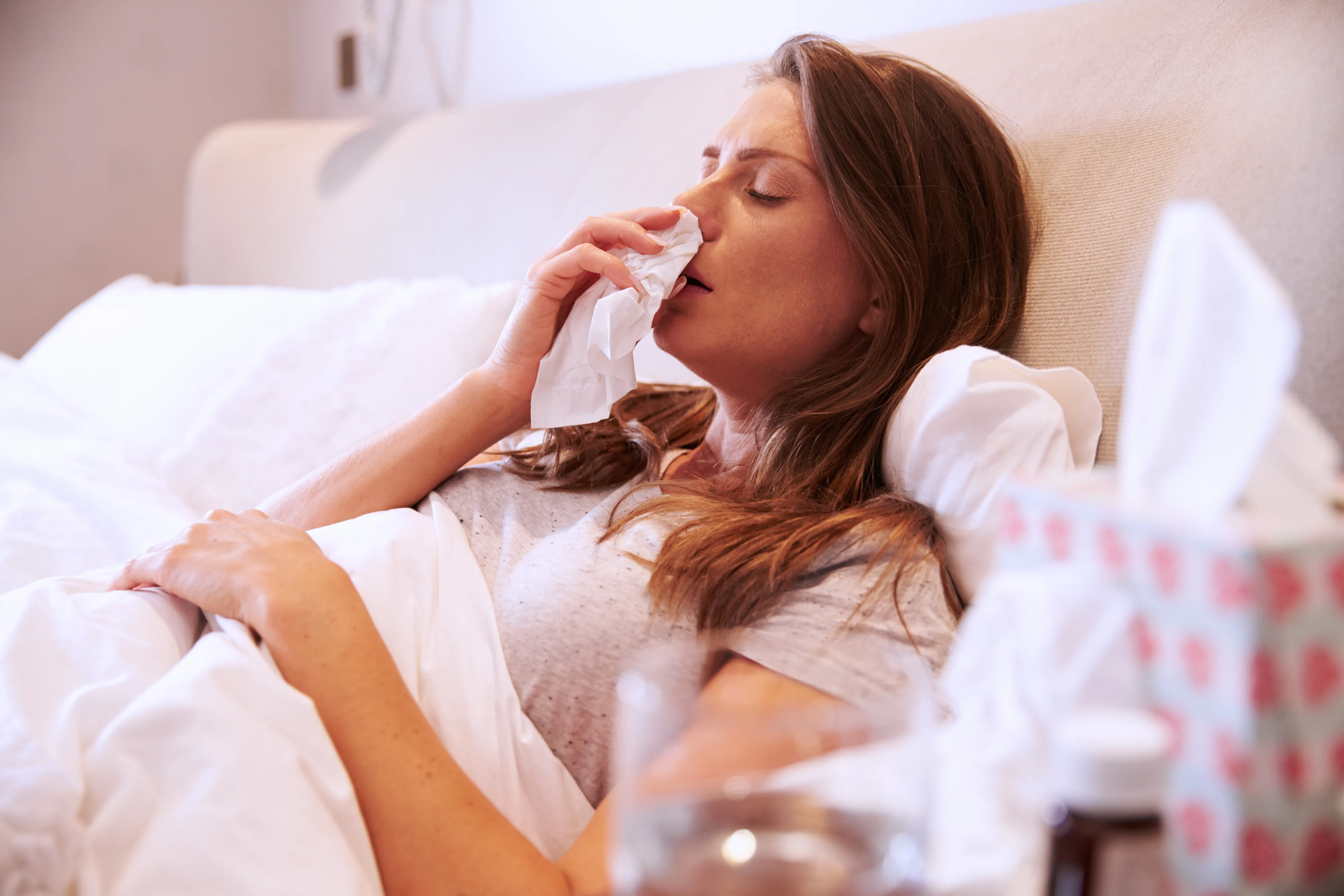Preventing Seasonal Allergy Symptoms
Spring has sprung and so have your sneezes
Allergies can wreak havoc on your system, causing symptoms from watery or itchy eyes to coughing, congestion and possibly even a rash. While they've become synonymous with spring, allergies can actually be seasonal or year-round, depending on your trigger. The first step to controlling your bothersome symptoms is figuring out what you're allergic to.
 You can narrow it down by taking note of your symptoms and their patterns. Then you can work to avoid the allergen. Below are tips to reduce both seasonal and year-round environmental allergens, including dust mites, mold, animal dander and pollens.
You can narrow it down by taking note of your symptoms and their patterns. Then you can work to avoid the allergen. Below are tips to reduce both seasonal and year-round environmental allergens, including dust mites, mold, animal dander and pollens.
In the bedroom
- Remove heavy drapes, upholstered furniture and stuffed animals that are likely to collect dust.
- Use a zippered, plastic air-tight cover on all pillows and mattresses.
- At least every 14 days, wash all bedding and stuffed animals in hot water and dry on hot setting.
Throughout the rest of the house
- Avoid damp basements or water-damaged areas of your home and fix water leaks to prevent mold exposure.
- Clean moldy surfaces with a diluted solution of bleach. If a larger-scale mold exposure is suspected, you should seek professional assistance with mold removal.
- If possible, remove all carpets.
- Vacuum as frequently as possible using a HEPA (high-efficiency particulate air) filter vacuum.
- Avoid the use of ceiling fans. Prior to use, make sure to clean any collected dust from the surface of the fan blades.
- During the height of allergy season, keep windows closed, avoid exposure to pollens and limit outdoor activities when pollen counts are highest.
- Early morning for spring time tree pollens.
- Afternoon and early evening for summer grasses.
- In the middle of the day for ragweed in the fall.
- Consider using a HEPA filter to control airborne allergens (these only work if what you are allergic to is airborne, which doesn't include dust mites and mold). Change the filters frequently per the manufacturer's guide. You can also purchase HEPA home-air filters for use in your air conditioner.
- Since dust mites and mold increase in high humidity, keep indoor humidity low.
- Provide a smoke-free environment for yourself and any children.
- Cockroaches and rodents are also causes of allergies; if you suspect an infestation, make sure to clean your home frequently and thoroughly, store away food in secure containers, keep garbage outside and repair holes in the walls, floors, doors, etc. Also, seek the help of a professional exterminator.
For those who are allergic to animal dander
- Keep indoor pets out of the affected person's bedroom and wash your pet each week to remove surface allergens
- Consider a HEPA filter for the room in which the pet is primarily kept.
If you're unable to keep your allergies at bay with these measures, I recommend you try an over-the-counter option, such as daily salt water irrigation (Neti-Pot) combined with a steroidal nose spray (Flonase), or allergy medications, such as second generation antihistamines (Claritin and Zyrtec).
First generation antihistamines (Benadryl) should be reserved for severe cases and should not be used as a long-term solution. If you've exhausted these measures and allergies are still impacting your daily life, or if you're experiencing severe coughing, wheezing or shortness of breath, seek the help your physician. Specialized medication and testing may be for you.

Dr. Nitish J. Manning is a member of Chesapeake Regional Primary Care, a part of Chesapeake Regional Medical Group. She earned her medical degree from Eastern Virginia Medical School (EVMS) in Norfolk, Va., her master’s degree in medical science from the Drexel University College of Medicine in Philadelphia, Pa. and a bachelor’s degree in biology from Richard Stockton State College of New Jersey, Pomona, N.J. She completed her internship and residency at EVMS Ghent Family Medicine and served as the Geriatric Chief resident. Dr. Manning is a member of the American Academy of Family Physicians and the American College of Physicians.